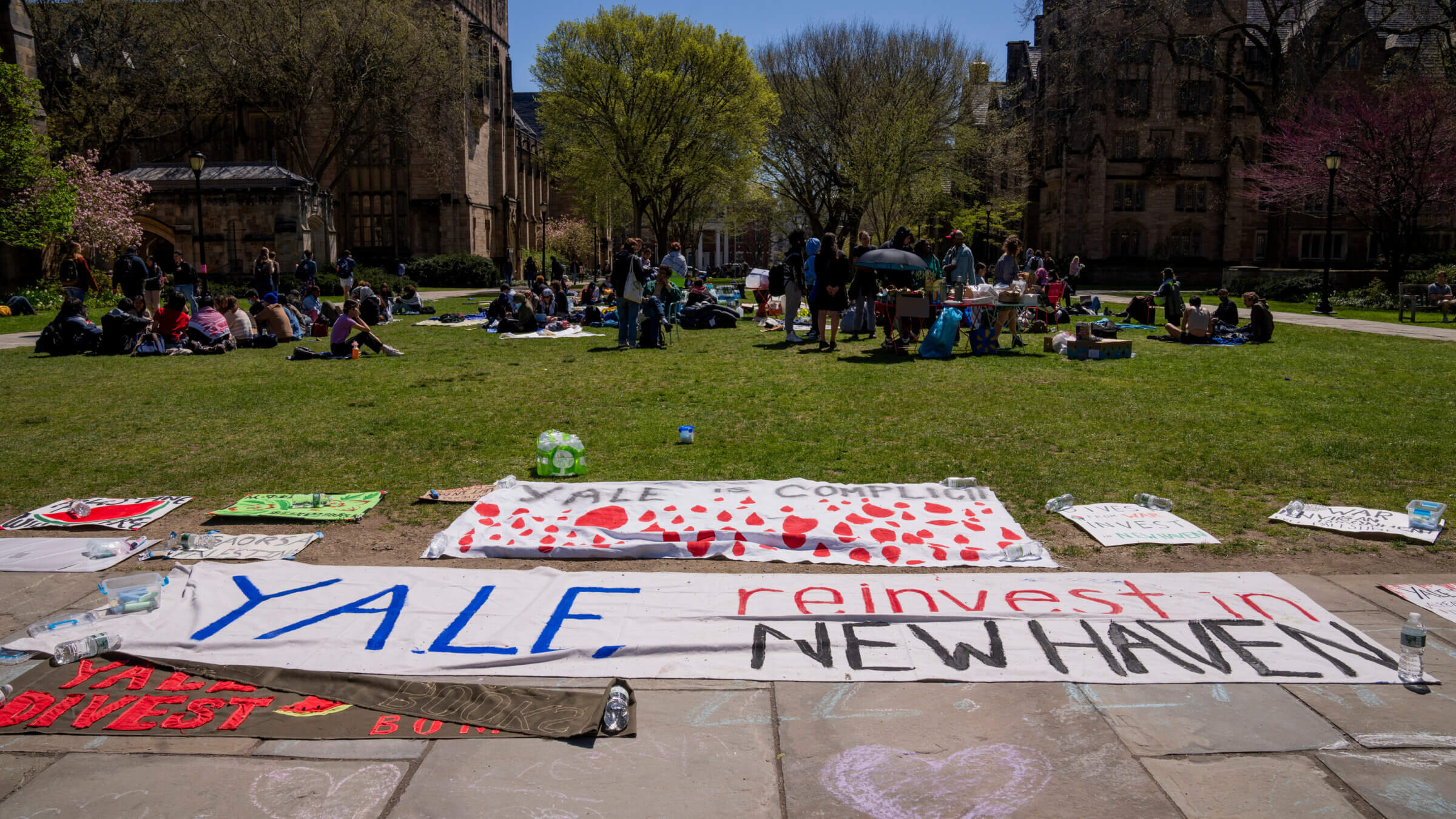This rabbi is ‘horrified’ at how a song he wrote is being used at campus pro-Palestinian protests
Rabbi Menachem Creditor said he objects to ‘Olam Chesed Yibaneh’ used to protest Israel

Pro-Palestinian signage displayed at Yale University in New Haven, Connecticut, where students sang Rabbi Creditor’s song at a Seder. Photo by Joe Buglewicz/Bloomberg via Getty Images
This article has been updated to include a response from Yale Jews for a Ceasefire.
In a moment of relative quiet, Jewish students at Yale University’s Cross Campus quad, arms around one another’s shoulders, joined in song on the first night of Passover. They sang the tune Olam Chesed Yibaneh (“We Will Build this World from Love”). The song’s writer is outraged.
Rabbi Menachem Creditor wrote the song on the occasion of his oldest child’s naming ceremony in 2002. It became popular in years since, released on Creditor’s 2015 album Olam Chesed. But Creditor, who recently published Am Yisrael Chai, a collection inspired by the Oct. 7 attack by Hamas, believes that students protesting Israel’s war in Gaza are distorting it.
“Those who are using the song in these protests are misappropriating its message of love and support for Israel,” Creditor, scholar in residence for UJA-Federation of New York, said in a statement. “I cannot accept its use by the protesters”
Since Oct. 7, Creditor said he has been “horrified” that students at campus protests were singing his song, whose Hebrew words were taken from the Book of Psalms.
Creditor was “distraught” that media outlets, including The New York Times, used the moment of students singing his song to provide “a sympathetic portrayal of their participation in the hateful, anti-Israel protests that are sprouting — and rapidly rising in intensity — at campuses across the country.”
In an Instagram post Thursday, Creditor said “these groups have taken my song hostage too.”
“Let me be clear,” Creditor wrote, “I vehemently object to the song being used in any context that is against Israel or the Jewish people.”
Yale Jews for a Ceasefire, which c0-organized the Seder, said in a statement that when its members sing Olan Chesed Yibanah, they “envision a future where Israelis and Palestinians can live in peace, in a world built from love. We believe that Israeli and Palestinian liberation are fundamentally intertwined.”
While folk songs like Creditor’s have long been a staple of campus protests — and Creditor himself, one of 18 rabbis arrested protesting Donald Trump’s refugee ban in 2017, has a long history of activism for progressive causes — he insists that those who sang Olam Chesed Yibaneh at Yale have beliefs that “could not be further from [his] own.”
Yale Jews for a Ceasefire said that it “respect[s] that Rabbi Menachem Creditor holds beliefs different from our own, and we appreciate the space that Judaism provides for tensions, disagreements, and multiple interpretations.”
Creditor still plans to use his song to advocate for what he believes in.
“In these difficult days I will continue to sing it, full voice, to show my unwavering support for Israel and ironclad solidarity with the hostage families and their loved ones still in captivity,” Creditor said.
















